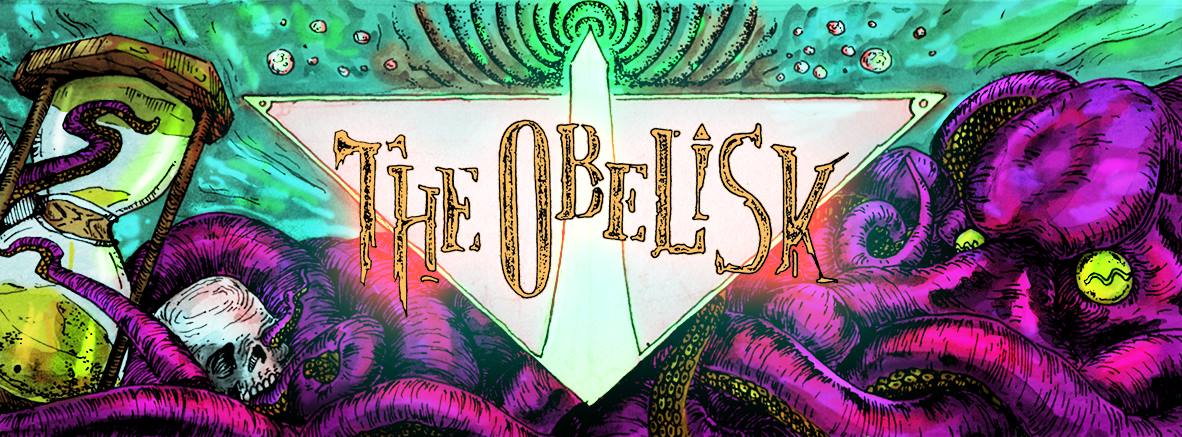Bus Premiere Title-Track Video From We Are the Night LP
Posted in Bootleg Theater, Reviews on May 2nd, 2024 by JJ KoczanAthens classic-heavy purveyors Bus — aka Bus The Unknown Secretary — move deeper into the metallic with their third full-length, We Are the Night. Set to release June 21 as their first offering through Sound Effect Records and the follow-up to 2019’s Never Decide (review here), the tight-knit 33-minute eight-songer LP manifests influences that have been at work in their sound since their 2016 debut, The Unknown Secretary (review here), but it is as refined in its focus as it is brazen in the proto-thrash shove of “Amass Empathy” or the Judas Priest-style careening chug of “Somebody Spits on You,” so perhaps it’s fair to say they’re leaning into the harder, rawer, and less boogie-prone side of their collective persona.
They do so with immediacy resultant in part from a generally stripped-down feel in the material. It’s not all as outwardly speedy as the opening title-track (video premiering below) and initial single and album-closer “Under My Skin” — to wit, the penultimate “Rise of the Fallen” pulls back on the throttle to give its lead guitar all the more space to establish a sinister atmosphere leading into the finale, with organ melody adding some light to its own crescendo — but the forward charge is nonetheless definitive, and bolstered by the divergence into garage-doom lumbering of “Rumours” and the returning production work of John Vulgaris keyed for warmth as well as clarity enough to let the changes shine through.
But it also helps that Bus aren’t trying to hide where they’re coming from or play coy in stylistic terms. Whether it’s “I’ll Be Dead for You” with a riff so ’80s that even Mötley Crüe’s AI  would be impressed, or the way “Nevermind/Realise” complements its twisting guitar leads with a cyclical rhythm on drums and extra punch in the bass, the four-piece hold fast to the classic-metal foundations driving them. They don’t dwell too long in any single movement, but each piece adds something to the overarching flow and contextual dynamic, as when “Rumours” redirects the momentum after the speedier “Somebody Spits on You” or “Amass Empathy” kicks off side B with such pointed intensity. We Are the Night isn’t as broad in its reach as some of what Bus have done in the past, but in trade, its specific focus becomes a strength that makes it hit that much harder.
would be impressed, or the way “Nevermind/Realise” complements its twisting guitar leads with a cyclical rhythm on drums and extra punch in the bass, the four-piece hold fast to the classic-metal foundations driving them. They don’t dwell too long in any single movement, but each piece adds something to the overarching flow and contextual dynamic, as when “Rumours” redirects the momentum after the speedier “Somebody Spits on You” or “Amass Empathy” kicks off side B with such pointed intensity. We Are the Night isn’t as broad in its reach as some of what Bus have done in the past, but in trade, its specific focus becomes a strength that makes it hit that much harder.
With “Rumours” and the chunkier riffing of “Rise of the Fallen” offsetting the sheer thrust that surrounds and “Under My Skin” capping with not-the-record’s-first nod to the NWOBHM in the guitar and a bookend to the title-cut, We Are the Night isn’t hyper-simplified or just a half-hour-plus of Bus doing the same thing eight times over. Instead, they bring pretense-free homage to the metal of eld and present songs varied in character but united in purpose, efficient in craft and rife with aesthetic intent. That’s not the most “get those horns up!” sentence I’ve ever written, for sure, but amid all the brash riffing and hairpin turns they pull off, they’re making a declaration of who they are and what they want to do at this stage in their tenure.
Will it be the same going forward? Hell if I know. But if you’ve followed Bus at all to this point or if they’re completely new to you, the vitality with which they execute We Are the Night invites you to be in the moment with it, and maybe let later worry about later later. Garage metal? Freedom metal? Trad metal? Call it whatever you want, it’s no less exciting to take on front to back.
Enjoy the video for “We Are the Night” below, followed by more from the PR wire:
Bus, “We Are the Night” video premiere
Doomed by the cruelty of the new world, we’re once again ready to smash the bridge of the imperial vision, right here – right now! A truly independent and irreverent album has landed! “WE ARE THE NIGHT” came to seal the extraordinary music attitude of the extreme classic rock quartet from Athens. Through the difficulties of the recent years BUS got more motivated and the result is a true solid rock/metal album. Compact! Powerful! All killer, no filler! Just bangers such as the self-titled song “We Are the Night”, “Somebody Spits on You”, ‘I’ll be Dead for You” and “Under My Skin”.
The album was recorded live in three days at Electric Highway Studios in Athens, engineered once again by John Vulgaris. It’s the second time the band trusts John Vulgaris for his creativity and input in the creative process, like singing and playing various instruments. So, let’s find the reason for tonight and bang our heads with heavy metal, sex and rock n roll.
“We Are the Night” is due out on June 21st on vinyl and CD! Pre-sale shall be announced soon.
Tracklisting:
1. We Are the Night (5:14)
2. Somebody Spits on You (2:36)
3. Rumours (4:46)
4. I’ll Be Dead for You (3:53)
5. Amass Empathy (3:14)
6. Nevermind/Realise (3:02)
7. Rise of the Fallen (5:39)
8. Under My Skin (5:03)
First single “Under My Skin” streaming now on youtube and bandcamp: https://bustheunknownsecretary.bandcamp.com/album/under-my-skin





